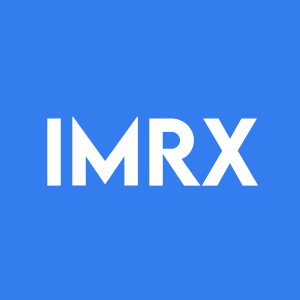Immuneering (IMRX) insider purchase: 13.4K shares acquired by CSO Hall
Rhea-AI Filing Summary
Immuneering Corp. (IMRX) Form 4 filing: On 24 June 2025 the company reported two open-market insider purchases by Chief Scientific Officer Brett Matthew Hall.
• 20 Jun 2025 – Hall bought 7,415 Class A common shares at a weighted-average price of $2.6999.
• 23 Jun 2025 – Hall bought 6,007 Class A common shares at a weighted-average price of $2.4299, with individual trades executed between $2.4101 and $2.4299 (per footnote 1). Both transactions were coded “P,” confirming they were purchases rather than option exercises.
No derivative securities were reported in Table II. Following the purchases Hall now directly owns 359,318 Class A shares, up from 345,896 beforehand—an increase of roughly 3.9 %. The filing does not mark the Rule 10b5-1 safe-harbor box and contains no amendments or dispositions.
Positive
- Chief Scientific Officer Brett Matthew Hall purchased 13,422 Class A shares on 20 Jun 2025 and 23 Jun 2025, indicating insider confidence.
- Hall’s direct ownership increased to 359,318 shares after the transactions, with no accompanying sales or derivative activity.
Negative
- None.
Insights
TL;DR: Insider CSO adds 13.4k shares; confidence signal but modest size, unlikely to shift valuation.
The purchases total 13,422 shares at a combined cash outlay of roughly US$34,400, raising Hall’s direct stake to 359,318 shares. Although insider buying is generally viewed as a bullish indicator, the incremental 3.9 % increase is small relative to both Hall’s existing holding and Immuneering’s 28.4 million share float. No derivatives or sales were disclosed, reinforcing the net-buy stance. From a market-impact standpoint the dollar value is minor, so the transaction is best interpreted as a sentiment data point rather than a catalyst for immediate price movement.
TL;DR: Additional ownership strengthens alignment; no 10b5-1 plan noted; overall governance positive but financially immaterial.
The Form 4 shows voluntary, open-market purchases by a named executive officer with no accompanying sales or hedges, enhancing management–shareholder alignment. The absence of a checked 10b5-1 box suggests discretionary timing, which investors often interpret as higher conviction. Compliance appears proper—timely filing, clear footnote disclosure, and no proxy for derivative instruments. From a governance lens this is a constructive data point, yet the nominal dollar amount limits its strategic weight.








